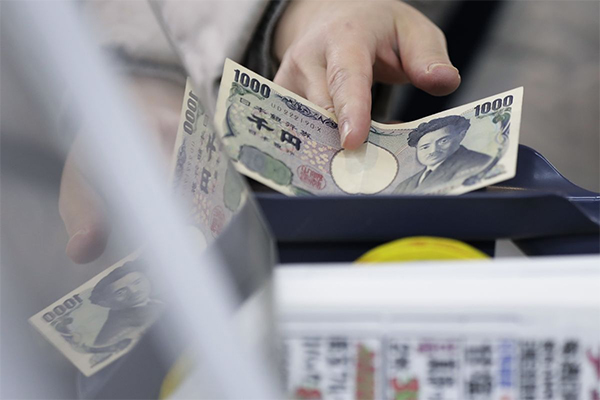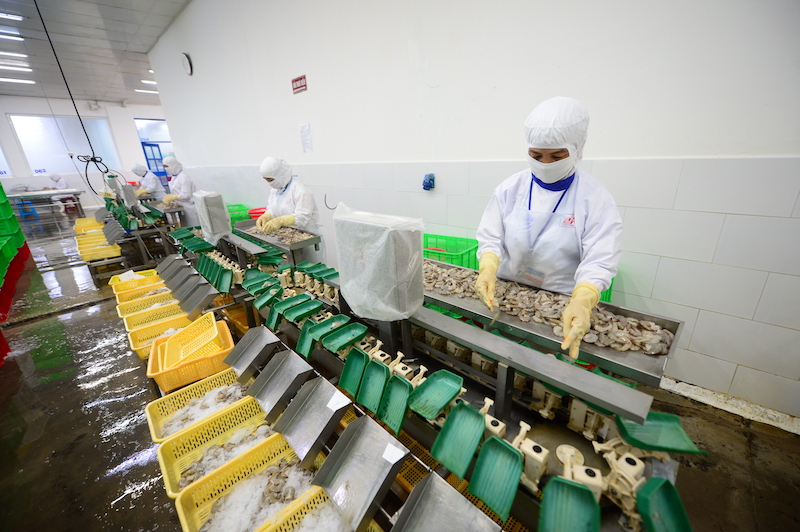
Vietnam's response to the JPY depreciation
According to analysts, the fluctuation of the Japanese Yen would undoubtedly damage Vietnam, particularly people receiving Yen income and businesses engaged in import-export activity with Japan.
The Japanese Yen sank to its lowest level in a month versus the US dollar during the trading session on April 18th, as solid industrial output statistics in the US stoked speculation about the Federal Reserve's (Fed) probable interest rate rise next month.
In reaction to the Yen's devaluation, the Tokyo stock market gained, led by bank, agriculture, and fisheries firms, as well as news and media. Bank of Japan (BoJ) Governor Kazuo Ueda affirmed that Japan will keep interest rates ultra-low for the time being.
According to Nguyen Minh Tuan, CEO of AFA Capital, Japan is keeping its loose monetary policy in the face of central banks and economies boosting interest rates. As a result, the DXY index, which was assessing the Yen at an average threshold of 100-110, jumped to an average of 150, forcing the currency to decline. This measure is intended to boost Japan's domestic GDP growth, however one component that has emerged is an increase in inflation.

After a decade, the Bank of Japan has selected a new Governor, Kazuo Ueda, who will serve a 5-year term. The Bank of Japan is now attempting to strike a balance between stimulating the economy through loose monetary policy and meeting the 2% inflation objective. Ueda believes that monetary easing should continue, although he does not rule out a reassessment of the interest rate control scheme.
"However, Japan has entered a new cycle, with inflation data in 2022 rising to 4.3%, which may lead them to tighten monetary policy to reduce inflation, and this will affect the movement of the Yen," said Tuan.
Mr. Nguyen Minh Tuan indicated that as of the end of 2022, Japan will be Vietnam's fourth-largest commercial partner, with exports exceeding 22 billion USD and imports over 27 billion USD.
Given Vietnam's entire import and export turnover of about 800 billion USD, this is a considerable figure. Vietnam specifically exports seafood, textiles, and wood goods to Japan while importing computers, electronics, components, machinery, iron and steel, and plastic items.
As a result, changes in the Japanese yen will surely effect two groups: first, people who earn their income in Japanese yen, and second, enterprises that do business with Japan. At the same time, Japan has large FDI capital in Vietnam, so when the yen is high, they will boost investment in other countries more than in Vietnam, and vice versa.

"Japan's policies also have an impact on Vietnam's economy because when we open the economy, we also open the investment and financial markets. At the same time, we will know how Japan's capital flows into Vietnam," said CEO of AFA Capital.
Along with that, monetary policies also determine the interest rates and exchange rates of currencies, so investors will have to balance carefully in investing between the two countries. If their currency exchange rates continue to rise, they will invest more easily," he added.
According to the Vietnam Association of Seafood Exporters and Producers (VASEP), Japan is one of Vietnam's largest seafood import markets with good growth rates. However, currently, the cost of shrimp production in Vietnam is higher than that of Thailand and India. Once the currency loses its value, importing countries will seek out products with lower costs. This is extremely disadvantageous for Vietnam's seafood industry.
Sharing solutions to cope with difficulties, a representative of a company said that actively negotiating and sharing a harmonious approach to raw material purchase prices and export prices are the urgent measures that companies are implementing to cope with the disadvantages of the exchange rate. On the one hand, the company supports customers on prices, shares difficulties with customers, and on the other hand, has a responsibility to farmers to keep shrimp prices in the country stable.
By: DIEM NGOC - TRUONG DANG







